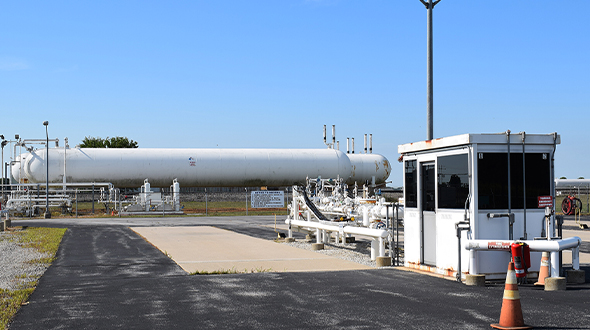Guard against the spread of COVID-19 this winter
The propane industry’s dedicated and skilled workforce will contend with an added challenge in the coming months as drivers rev their engines to make deliveries – preventing the spread of COVID-19.

Preparation for winter means the industry should have a greater population of trained drivers at multiple facilities. Photo by LP Gas staff
As the temperature drops and the snow starts to fly across much of the country, the industry can lean on its inherent safety processes to keep employees and customers safe and healthy, and propane on the move to its needed destination.
LPG service and delivery involve long-standing safety protocols that should make our industry and customers proud. The industry has evolved in safety and training over the years by investing in its people, operational methods, equipment and technology, and personal protective gear. It also wields a long list of natural born safety leaders whose passion and knowledge help to keep employees sharp and educated so they can perform their daily tasks for customers and return home safely to their families.
But we’re entering uncharted territory with the novel coronavirus pandemic. Just as the industry responded admirably after the pandemic took hold in March, near the close of winter, it must now prepare a safe and calculated response for the full six months of the heating season.
“When we’re on the clock, it’s up to each of our organizations to make sure we have the responsible policies that enforce the standards that regulatory agencies are saying is the best practice to reduce transmission” of the virus, says UGI Corp.’s Steve Kossuth, chairman of the National Propane Gas Association’s (NPGA) Propane Supply and Logistics Committee and moderator of its summer webinar series about the LPG supply chain.
Every decision must be made with safety in mind to keep drivers behind the wheel and off the sidelines for the upcoming winter, Kossuth says.
Some companies have been heeding that call, whether it’s formulating new plans for training or arming drivers with masks and hand sanitizer.
“We’re doing anything and everything we can to stop the spread,” says Angela Branchi of Grammer Logistics during one NPGA supply webinar focused on transportation.
Training at terminals
The webinar on transportation also explored the topic of safety and training of transport drivers loading propane at terminals.
Hands-on training has changed in a COVID-19 world, with social distancing and pandemic-related safety protocol creating less-than-ideal circumstances for training.
What’s more, unique certification processes in play at some terminals across the U.S. owing to COVID-19 precautions are adding to companies’ preparation work ahead of winter.
With COVID-19 safeguards slowing the process of training at terminals, panelists urged companies to get their transport drivers carded as soon as possible to overcome the hurdle of training during the peak of winter.
Kossuth also stresses the importance of using the valuable time now to get drivers trained at terminals.
Preparation for winter means the industry should have a greater population of trained drivers at multiple facilities. Retailers can play a part too by communicating with their transportation companies and propane suppliers about requirements at the terminals from which they’re pulling product, says Jon Long of Hilco Transport.
“When training in the heat of battle, you’re already playing catch-up,” Kossuth adds.
Company leaders must also manage the unique circumstances surrounding the “large span of hesitation” from employees who are not fearful of COVID-19 to those who are petrified, says Casey Teague, vice president of trucking at Enterprise Products.
How this winter plays out for the propane industry is dependent on what happens with COVID-19, the weather (of course) and how the industry adjusts to the changing supply lanes.
“Communication early and often is the solve for the unknown,” Kossuth says.
















